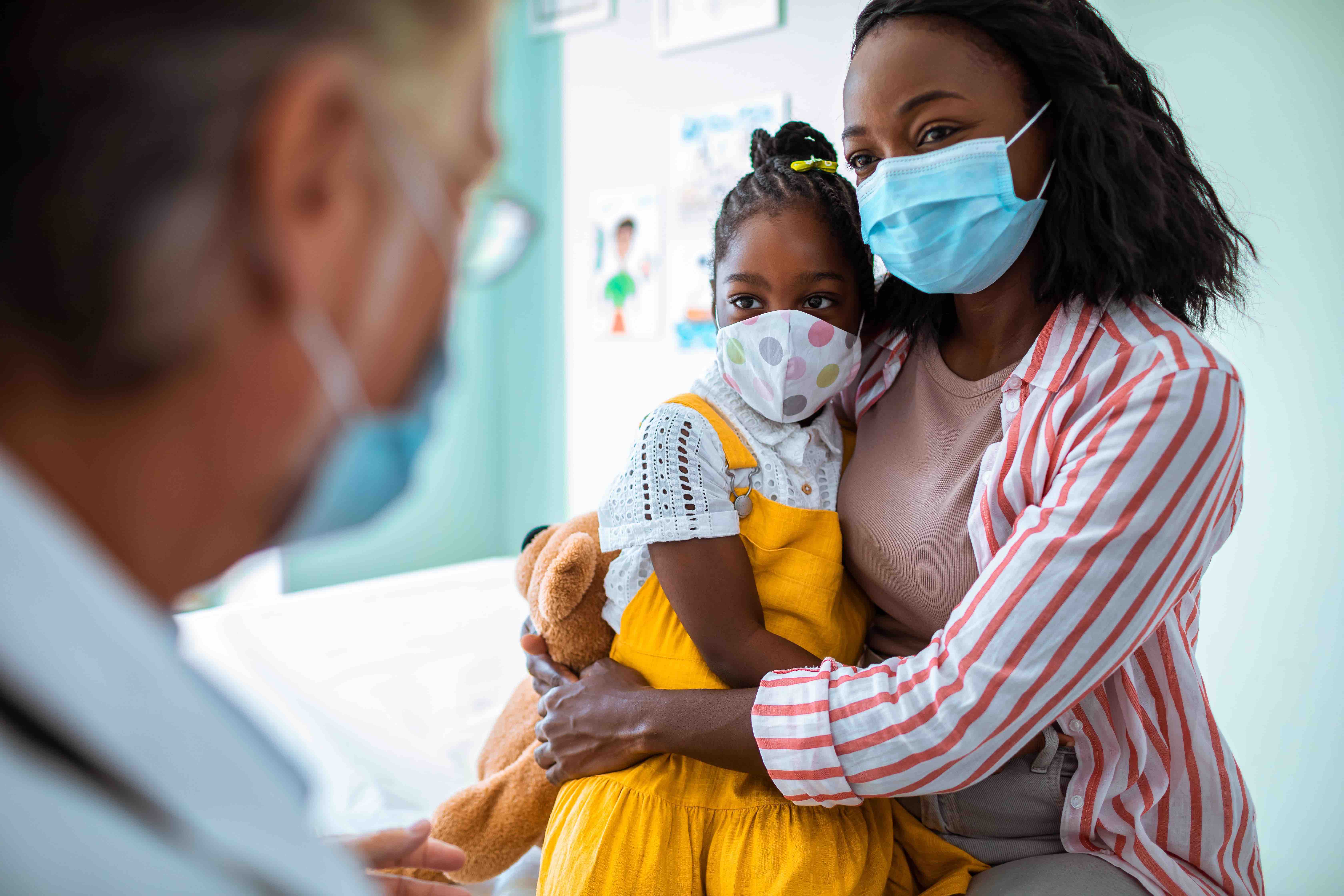| | | | | | | Presented By PhRMA | | | | Vitals | | By Caitlin Owens ·Mar 12, 2021 | | Good morning. Today's word count is 1,096, or a 4-minute read. | | | | | | 1 big thing: Pandemic preparations began before official pandemic |  | | | Illustration: Sarah Grillo/Axios | | | | The pandemic crashed into American life one year ago this week — but key decision-makers sensed what was coming earlier than most Americans, and even many politicians, Axios' Dan Primack reports. The big picture: In interviews for this week's special series of Axios Re:Cap podcasts, The Week America Changed, leaders in both the public and private sectors described their growing awareness, early last year, of just how bad things could get. - Facebook COO Sheryl Sandberg says Mark Zuckerberg came to her in January, based on some of the health work he'd done with the Chan Zuckerberg Initiative, and said they should prepare for the possibility of everyone working from home.
- NBA commissioner Adam Silver in January attended a Brooklyn Nets game, during which he ran into a virologist who had advised the league on HIV after Magic Johnson tested positive. The doctor told Silver his entire team was refocusing exclusively on COVID-19.
- United Airlines CEO Scott Kirby, says in an interview to air Sunday that the company raised $2 billion in bridge financing during the first week of March, even though United had plenty of liquidity and passengers were still flying."
- Los Angeles schools superintendent Austin Beutner says discussions about closing began in February, and that planning really began on March 1 — nearly two weeks before the official decision was announced.
Other episodes in the Axios Re:Cap series include conversations with Steven Corwin, the CEO of NewYork-Presbyterian; Anthony Fauci (posting this afternoon) and White House Chief of Staff Ron Klain (posting tomorrow). |     | | | | | | 2. Vaccines for everyone | | President Biden last night directed all states and tribal governments to designate all adult Americans eligible for a vaccine no later than May 1. Why it matters: It's part of the Biden administration's "wartime effort" to get the nation "closer to normal" by July 4, Axios' Jacob Knutson writes. Context: Biden said in early March that the U.S. will have enough vaccine doses for 300 million Americans by the end May, roughly two months sooner than his previous promise of enough vaccines for all American adults by the end of July. The big picture: The president is also expected to announce a website and call center that will launch by May 1 and make it easier for people to find vaccine locations and schedule an appointment. - He will increase the number of places people can get vaccinated and expand the type of people who can administer vaccines or support vaccinations.
- Biden is expected to announce the deployment of more than 4,000 active duty troops to support vaccination efforts, which will bring the total number of soldiers assisting vaccinations to over 6,000.
What I'm watching: What the Biden administration will do with the more than a billion extra doses the U.S. has purchased once supply is significantly exceeding demand. |     | | | | | | 3. A new dawn for messenger RNA vaccines |  | | | Illustration: Sarah Grillo/Axios | | | | The blockbuster success of messenger RNA vaccines in the COVID-19 pandemic could give a boost to efforts to use the technology to tackle cancers, malaria and other intractable illnesses, Axios' Alison Snyder reports. Why it matters: There's a pressing need for new ways to prevent infection from viruses like HIV and influenza that conventional vaccines have struggled to address and to treat rare genetic diseases and cancers that kill millions each year. - Vaccines and therapies based on messenger RNA (mRNA) hold promise as a solution, but the technology is still in its infancy.
Where it stands: After decades of development and several setbacks for mRNA vaccines, two are now being actively deployed to fight COVID-19. And pharmaceutical companies are pursuing others. What's next: Researchers are trying to use mRNA for therapies for noninfectious diseases that can't be prevented with a vaccine. - For cancer, mRNA is being investigated as a way to deliver to cells the code for proteins in a tumor, which could even be personalized to match an individual's cancer mutations. The cells then produce those proteins, training the immune system to recognize and destroy the cancer.
- Some early results are promising, but its success has been limited in other studies.
Go deeper. |     | | | | | | A message from PhRMA | | Biopharma is committed to being a part of the solution | | |  | | | | As we usher in a new administration and Congress, there are many things on which we can all agree, like building a more just, equitable society. | | | | | | 4. The U.S. is winning the vaccine race |  The U.S. has 4% of the world's population, 20% of all recorded COVID-19 deaths, and nearly 30% of all vaccine doses administered to date, according to Our World in Data. The big picture: The U.S. and U.K., both devastated by the pandemic, have sprinted far out ahead of other large countries in terms of vaccine rollout, Axios' Dave Lawler reports. - The EU, Canada, and other wealthy western countries have struggled to ramp up their vaccine supplies.
- The U.S., which has the one of the world's largest vaccine manufacturing capacities, has been far more successful.
Meanwhile Japan and South Korea, two rich countries that were hit less hard, have hardly started their vaccination campaigns. The delays are due to a combination of lower urgency, cautious governments and skeptical publics. - Half of South Koreans, for example, say they'd rather wait to see how vaccinations go elsewhere before getting a jab themselves, per the Economist.
- China has also moved much more slowly than the U.S.
Most African countries and many low-income countries in Asia and the Americas have yet to administer a single dose, not due to a lack of urgency, but to a lack of access. Go deeper: America's vaccine rollout has been among the best in the world |     | | | | | | 5. Catch up quick |  | | | Illustration: Aïda Amer/Axios | | | | NIAID director Anthony Fauci told CBS News Thursday that he's "very much" concerned about a post-COVID mental health pandemic. Speaking on the anniversary of the pandemic declaration, Fauci also said Thursday he would have been "shocked" to hear a year ago that the U.S. coronavirus death toll would surpass 500,000. The Pfizer-BioNTech coronavirus vaccine was at least 97% effective in preventing symptomatic COVID-19 cases and 94% effective against asymptomatic infection, according to real-world data from Israel released on Thursday. Doctors tended to overprescribe antibiotics to COVID-19 patients in hospitals during the early pandemic months, but programs designed to limit overuse are helping, according to an analysis from Pew Charitable Trusts. Domestic travelers will no longer be required to quarantine after entering New York beginning on April 1, Gov. Andrew Cuomo (D) announced Thursday. The European Medicines Agency has recommended Johnson & Johnson's single-dose COVID-19 vaccine for everyone over the age of 18. |     | | | | | | 6. Dog of the week | | Rosie. Photo: Chris, a Vitals reader Meet Rosie! - "Rosie is 11 years old and a world traveler. Considering airline policy, not an easy task for a pug," writes her dad, Chris.
- "Although she started out with us in Warrenton, Virginia, she has been with us through five State Department tours: Tbilisi, Georgia; Montevideo, Uruguay; Bogota, Colombia; Skopje, Macedonia; and is currently cloistered with us during the pandemic in Lima, Peru."
- "Her tongue is her most distinctive and commented upon feature (it never totally retracts). It doesn't help that any time she sniffs the ground, she takes part of it with her until we get home and she can wash her tongue in the water bowl."
- "She takes it all in stride, accepting admiring and amused glances from any and all. I have learned the word 'tongue' in several languages."
Rosie. Photo: Chris, a Vitals reader |     | | | | | | A message from PhRMA | | We are committed to being a part of the solution | | |  | | | | As we usher in a new Congress and new administration, we can all agree that people need quality, affordable health coverage that works when they need it. - We are focused on solutions that help patients better afford their medicines and protect access to innovation today and in the future.
| | | | | | Axios thanks our partners for supporting our newsletters.
Sponsorship has no influence on editorial content. Axios, 3100 Clarendon Blvd, Suite 1300, Arlington VA 22201 | | | You received this email because you signed up for newsletters from Axios.
Change your preferences or unsubscribe here. | | | Was this email forwarded to you?
Sign up now to get Axios in your inbox. | | | | Follow Axios on social media:    | | | | | |










No comments:
Post a Comment